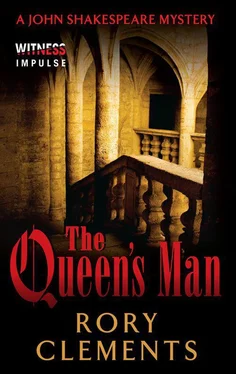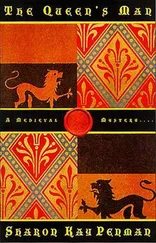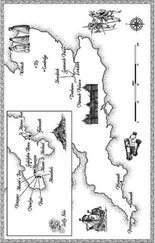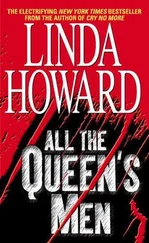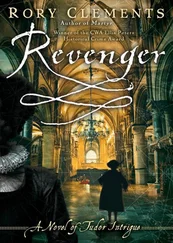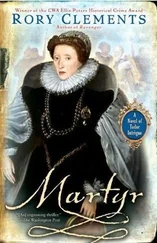Rory Clements - The Queen's man
Здесь есть возможность читать онлайн «Rory Clements - The Queen's man» весь текст электронной книги совершенно бесплатно (целиком полную версию без сокращений). В некоторых случаях можно слушать аудио, скачать через торрент в формате fb2 и присутствует краткое содержание. Жанр: Исторический детектив, на английском языке. Описание произведения, (предисловие) а так же отзывы посетителей доступны на портале библиотеки ЛибКат.
- Название:The Queen's man
- Автор:
- Жанр:
- Год:неизвестен
- ISBN:нет данных
- Рейтинг книги:4 / 5. Голосов: 1
-
Избранное:Добавить в избранное
- Отзывы:
-
Ваша оценка:
- 80
- 1
- 2
- 3
- 4
- 5
The Queen's man: краткое содержание, описание и аннотация
Предлагаем к чтению аннотацию, описание, краткое содержание или предисловие (зависит от того, что написал сам автор книги «The Queen's man»). Если вы не нашли необходимую информацию о книге — напишите в комментариях, мы постараемся отыскать её.
The Queen's man — читать онлайн бесплатно полную книгу (весь текст) целиком
Ниже представлен текст книги, разбитый по страницам. Система сохранения места последней прочитанной страницы, позволяет с удобством читать онлайн бесплатно книгу «The Queen's man», без необходимости каждый раз заново искать на чём Вы остановились. Поставьте закладку, и сможете в любой момент перейти на страницу, на которой закончили чтение.
Интервал:
Закладка:
Cutting through the press of men and animals, he crouched low into the saddle, goading his mount ever onwards, ever faster. He was clear of the huntsmen now. But twenty or thirty yards ahead of him one of the guards was closing on the carriage. Was that him, the killer? He had to beat him there.
Suddenly, his horse found another turn of foot. It was at the quarters of the guard in a matter of strides, then past him and alongside the carriage. Through the window he saw a blur: Mary and her lady-in-waiting, being thrown about like peas in a pan of boiling water. He had to stop this coach.
Shakespeare didn’t even think about his next move, for if he had, he would never have attempted such a thing. He removed his right foot from the stirrup, edged the horse left, brought the animal within a yard of the coachman’s seat and committed himself.
His left hand caught the iron support rail at the end of the driver’s bench, his foot pushed off from the stirrup and suddenly he was free of the galloping horse and swinging in space. His other hand grasped the rail, but his lower body and legs were dangling loose, close to a front wheel. If he touched it, he would lose his grip on the rail and he would be dragged down and crushed beneath the wheel. He swung his left foot up on to the protruding board of the undercarriage, then had the leverage to pull his right leg up towards the coach driver’s seat.
The coachman had other ideas. Holding the reins with his left hand, he grabbed up his petronel and tried to slam the butt of the weapon down on Shakespeare’s fingers. As he did so, Shakespeare saw the face beneath the coachman’s cap: Richard Topcliffe. He also saw the blow coming.
His hand broke free of the rail and snatched at the gun as it came down. The movement jerked Topcliffe sideways and, simultaneously, Shakespeare raised his right leg further on to the footboard. In the same movement, he pulled himself up and held the middle of the petronel like a spear, thrusting it forward, smacking the muzzle of Topcliffe’s weapon back into his own face.
Crying out and falling sideways, Topcliffe instinctively let go of the reins and clutched at his face. Blood seeped through his fingers from his torn cheek. Shakespeare needed no more prompting. Throwing the petronel down from the careering coach, he got hold of the lapels of Topcliffe’s coat, wrenched him from his seat and flung him down to the ground after his weapon.
He snatched up the reins and jerked the lead horse violently right. Kicking up a cloud of dust, the horses veered sharply away and the carriage went up on two wheels. He had driven carts and wagons before, but never a majestic coach such as this with six strong and speedy coursers. For what seemed like half a minute, but was probably no more than two or three seconds, the carriage teetered over and Shakespeare feared it would upend. But then the horses found their new line and the carriage came down with a jolt on all four wheels. From behind the panel he heard a scream.
Shakespeare lashed the horses with the long whip. He looked around him, horribly aware that the guard must be close. Though he had not yet seen the man’s face, he feared, too, that he knew who it was.
Other guards were making headway now, but it was the closest one that held his attention, for he was almost parallel. Surely he would not have the courage to leap aboard the carriage. Surely he would not be steady enough in the saddle to loose his weapon.
He continued to turn the carriage; he had to drive it back towards the castle. One thing was certain: if he stopped, they were all dead. The guards would consider him their enemy, trying to abduct Mary, and would not wait to ask questions before blowing him to dust.
Then he saw the face of the guard in his wake: he wore the Shrewsbury livery, but he was no guard. It was as he had suspected: this was Ruby Hungate.
All was lost. He knew what Hungate could do with sword and pistol. Had Walsingham’s steward not told him with awe that Hungate could shoot a bird from the saddle of a galloping horse? And even if that were an exaggeration, six horses in harness and a man in the driving seat were an easy enough target for a pistolier of such skill.
He cracked the whip again, trying to drain every last ounce of energy from the superb stallions. If only he could make it to the castle gatehouse, there might still be a chance. Hungate would not want to kill Mary there, for how could anyone think she had died in the act of escaping if she was clearly being driven back to her prison?
Now Hungate was level with Shakespeare. This was it. Would the bullet strike him in the head or in the heart — or would Hungate shoot the horses to bring the whole carriage crashing to a bloody halt?
And then they came, streaming out from the castle gatehouse. A body of guardsmen, some on foot, some on horseback. Above them, on the battlements, Shakespeare saw the Earl of Shrewsbury looking down in grim silence on the unfolding drama. Glancing sideways, he saw that Hungate too had spotted the earl and the advancing guardsmen.
Hungate reined in. For a few moments, he gazed on the approaching horde of castle guards, then he looked up at the commanding figure of Shrewsbury again. Finally, he bared his teeth at Shakespeare and shook his head as if to say, This isn ’ t over . He thrust his pistol into his belt, wheeled his horse a half-turn, and spurred it into a ferocious gallop. His game was done; he had lost this round.
As the guards swarmed around like wasps on the scent of sweet syllabub, Shakespeare slowed the horses and at last brought them to a halt. Steam rose from their flanks and their great barrel chests heaved.
Shakespeare took a deep breath and climbed down from his perch, handing the long reins to one of the guards. He went to the carriage door. The blinds had been rolled down, blanking out the interior. One of the locked doors had been flung open by the violence of the chase. He stepped up and peered inside. A dog yapped. In the gloom, he saw two women, huddled into their cloaks. One was hooded in blue velvet. He could not see her face. She was shying away from him, shrinking into the corner of the seat, clutching at the dog. ‘ Ne me regardez pas! Ne me regardez pas! You will not look at me, you will not!’
Her companion moved from her seat to block the intruder’s view of her mistress.
‘You are safe now, ma’am,’ Shakespeare said. ‘My lord of Shrewsbury’s men are here to escort you back to your apartments.’
From the depths of the huddle, an arm appeared. The ungloved hand hung limp, sickly and pale and a little too fat. A hand with rings, one showing a phoenix, the other a cross of Lorraine. Shakespeare understood that he was supposed to genuflect and kiss this blotched, unhealthy piece of royal flesh. Instead, he closed the coach door and stepped away.
Chapter Thirty-Four
The Earl of Shrewsbury cut a miserable figure. It seemed to Shakespeare that he would do well to command a seamstress to take in his fine old doublet and have his steward order new ruffs from London. For a man known to be among the wealthiest in the land, there was no reason to worry about the cost. Perhaps he had merely lost interest in his appearance through being away from court so long.
They were sipping fine French wines in his library.
‘I wish I was surprised,’ the earl said after Shakespeare had explained all he knew of the conspiracy. ‘The question is: what will you tell your master about these events?’
‘The truth, my lord. Mr Secretary can sniff a lie at a hundred paces.’
‘Yes, I believe he can. Well, I am sure you cannot lay all the blame at my door. It was the Privy Council and the Queen herself who authorised the carriage for the papist. And in the event, very little harm has been done. Would you not agree?’
Читать дальшеИнтервал:
Закладка:
Похожие книги на «The Queen's man»
Представляем Вашему вниманию похожие книги на «The Queen's man» списком для выбора. Мы отобрали схожую по названию и смыслу литературу в надежде предоставить читателям больше вариантов отыскать новые, интересные, ещё непрочитанные произведения.
Обсуждение, отзывы о книге «The Queen's man» и просто собственные мнения читателей. Оставьте ваши комментарии, напишите, что Вы думаете о произведении, его смысле или главных героях. Укажите что конкретно понравилось, а что нет, и почему Вы так считаете.
